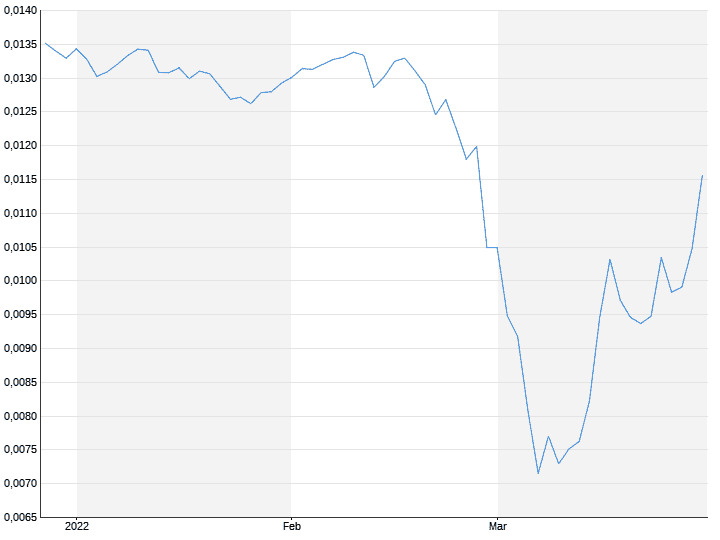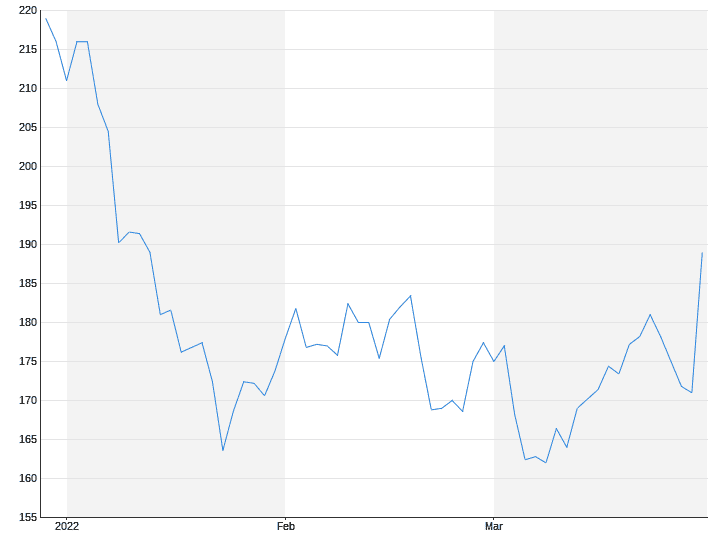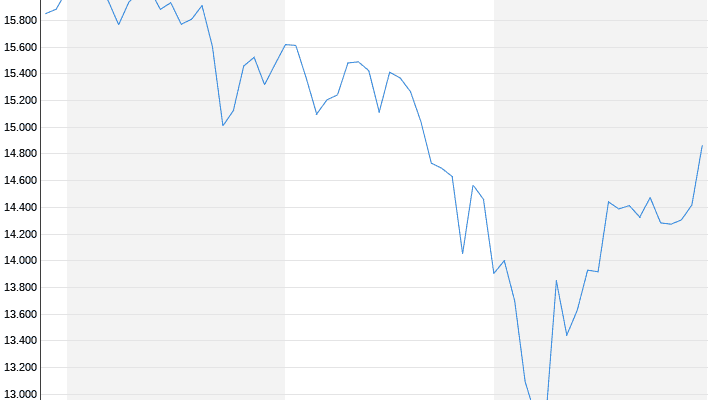Ukraine talks give impetus
Dax increases by more than three percent
3/29/2022, 4:42 p.m
The Russian-Ukrainian negotiations in Istanbul have been well received on the financial markets. The leading index Dax is expanding its gains as a signal of possible relaxation. The price of oil, on the other hand, is coming under pressure.
Investors are returning to European equities in hopes that the fighting in Ukraine will end soon. Dax and EuroStoxx50 each rose by around three percent to 14,811 and 4004 points respectively. The euro was also in demand, gaining one percent to $1.1082. In return, Brent crude oil from the North Sea, which had risen sharply in recent weeks due to speculation about failures in Russian deliveries, fell by 3.7 percent to $108.37 a barrel (159 liters). “Indications that the Russian side is backing away from some of its original demands lift the spirits,” said financial market expert Russ Mold of brokerage house AJ Bell.
“However, the market is unlikely to take anything for granted about Russian President Vladimir Putin’s machinations.” The Russian chief negotiator Vladimir Medinski described the talks as constructive. A face-to-face meeting between Putin and Ukrainian President Volodymyr Zelenskyy is possible once the foreign ministers have approved an agreement. The Russian stock market also went up.
Ruble rally driven by two factors
The Moscow leading index RTS advanced more than ten percent at the top. Russian government bonds were also in demand. This pushed the 10-year yield down to 12.97 percent. The appreciation of the Russian currency pushed the dollar down 7.5 percent to 83.05 rubles.

The ruble’s rally is being driven by two other factors, said Iskander Lutsko, chief investment strategist at brokerage house ITI. On the one hand, this is the planned conversion of energy exports to ruble payments and on the other hand the regulation for export companies to exchange 80 percent of their foreign currency holdings in rubles.
Increased investor confidence made “safe havens” less attractive to them. Gold fell 1.1 percent to $1,900 an ounce (31.1 grams). Selling Bunds temporarily pushed yields on 10-year bonds to a four-year high of 0.741 percent. The expected interest rate hikes by the US Federal Reserve and the feared burdens on the global economy from the new lockdowns in China also played a role on the bond market.
Tailwind for Europe’s stock exchanges
Faster US monetary tightening amid a slowing economy is fueling fears that a recession is nearer rather than later, said NatWest investment strategist John Briggs. In the US, 10-year Treasuries yielded only slightly more than 2-year ones. If the yield of the latter rises above that of the former, experts speak of an “inverse yield curve”. It is seen as a harbinger of a recession.

Europe’s stock exchanges also received tailwind from company balance sheets: After the presentation of their final full-year results, Pfeiffer Vacuum shares were heading for the largest daily gain in more than 13 years with an increase of more than twelve percent. Analyst Martin Comtesse of investment bank Jefferies highlighted the vacuum pump maker’s record order backlog. In view of the continuing boom in the chip industry, however, the growth targets for 2022 are somewhat disappointing. The papers from Wacker Neuson, which rose in price by up to ten percent, were also in demand. This is the biggest price jump in a year and a half. Jefferies expert Comtesse commented that demand from the construction machinery manufacturer has remained high.
